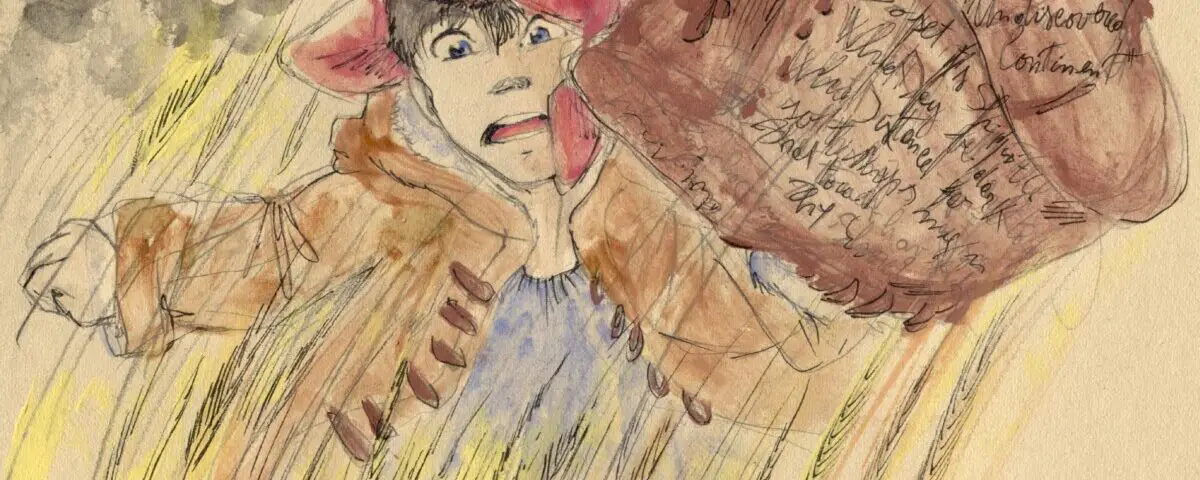|
Getting your Trinity Audio player ready...
|
Why is literature important? Before we answer this question, let’s look at what we mean by literature. According to Cambridge Dictionary, literature is defined as written artistic works, especially those with a high and lasting artistic value.
In other words, any story where text is written down can be classified as literature. However, most often it is used to refer to lasting works that have been deemed culturally significant. This is the sort of literature studied in schools and universities, which implies there is a reason it gets attention.
Literature, though often understated, plays a vital role in society, developing our critical thinking skills. So, don’t underestimate the importance of literature.
So, why is literature important, because without doubt it is? As a means of connecting to others, to society, and preserving and transmitting cultural knowledge, it is without peers. It isn’t a frivolous byproduct but a major part of life. And its function as entertainment should not be ignored.
Critical Thinking
One of the major reasons literature is important is that it helps us develop our critical thinking skills. Many non-literary stories are meant to be taken completely at face value. They are mainly straightforward and often formulaic, with little deeper meaning beyond the surface.
But literature, meaning written works with high and lasting artistic value, refers to more challenging work.
Techniques authors use
Through a variety of techniques, authors of great literature regularly embed elements into their work that need to be teased out.
Symbolism
One way authors accomplish this is through symbolism, and is one answer to the question, why is literature important. Symbolism is when an author injects components into their work that have multiple meanings beyond the obvious.

These can be anything from objects to locations to certain characters, and abstract ideas embedded in the story. For example, in William Golding’s Lord of the Flies, a group of schoolboys marooned on an island use a conch shell to maintain order. A boy must be holding the conch shell in order to speak, which he then passes to the next speaker. It’s therefore a symbol of democracy, civilisation, and fairness.
Once that façade of civilisation falls away, however, and one boy, Jack seizes totalitarian control, he disregards the shell. It’s ultimately shattered into a thousand pieces, symbolising the destruction of the democracy they had.
Unreliable Narrators

Another well-known method is the unreliable narrator. This is when the narrator of the story is misleading the reader—sometimes deliberately, sometimes not. In some extreme cases, the narrator is the villain of the story and is tricking the reader. More often, the narrator, like most people, simply believes themselves to be in the right and is therefore just expressing their biased viewpoint. Sometimes, the narrator isn’t bad, but just doesn’t understand the full implications of what’s happening.
A classic example is Holden Caulfield, the protagonist of J.D. Salinger’s The Catcher in the Rye. His youthful age often colours his perspective. If one doesn’t pay close attention to the subtle hints an author uses to imply a narrator is unreliable, we could take them at face value.
Therefore, these techniques teach us to think deeply about the words on the page and to question the assumptions and beliefs presented to us. Literature is important because it can help us become more thoughtful and reflective individuals able to make informed decisions in our lives.
Connecting through Literature

The importance of literature is evident when it allows us to connect with others. Through literature, we gain insight into the thoughts, feelings, and experiences of people who differ from us.
This alone can help us develop empathy and understanding. It is important in today’s world, where we are often isolated by technology and a lack of face-to-face interactions.
The effects of reading Literary Fiction
In 2013, David Comer Kidd and Emanuele Castano conducted a major academic study into the effects of reading literary fiction. The subsequent article, published in the Science journal, was called “Reading literary fiction improves theory of mind”.
Theory of mind refers to the empathetic skill of being able to understand other people’s mental states. According to Kidd and Castano, it’s a crucial skill that enables the complex social relationships that characterise human societies. Through conducting 5 experiments, they concluded that reading literary fiction enhances people’s ability to do this, as opposed to nonfiction and so-called popular fiction.
Popular Fiction’s Role
We consider popular fiction to be less intellectual than literary fiction. According to Beth Ellwood, literary fiction asks readers to search for meaning and produce their own perspectives and involves complex characters. Therefore, it’s an active reading experience that helps foster these connections as the reader must work to understand them.
On the opposite end of the spectrum, she explains that popular fiction provides meaning for the readers and is more concerned with plot than characters. Non-fiction, similarly, doesn’t allow readers to experience the world through the eyes of others, as literary fiction does, because it is about facts.
When someone reads literature, they are immersing themselves in the voice and experiences of another person. When that fictional person differs from them—whether in terms of race, country, sexuality, etc.—it can help give them empathy for people in the real world.
Transmitting Cultural Knowledge and Values

Literature is important because it helps us preserve and transmit cultural knowledge and values.
Throughout history, literature has been used to record important events, tell stories, and pass on traditions and beliefs from one generation to the next.
Without literature, we would lose much of the wisdom and knowledge accumulated over centuries.
Those who cannot remember the past are condemned to repeat it.
Spanish philosopher George Santayana
A Viewpoint from the Past
By capturing the past, literature allows us to connect with what people did and how they thought in those days. It allows us to see our own society and the societies of others at earlier stages of development. Through it, we can learn what they learned, passing on what was useful, and not repeating their mistakes. And furthermore, as we saw in the previous section, we don’t get this knowledge from dry facts.
Instead, we can peer into the souls of characters created at the time with whom we can empathise. That empathy allows us to understand and care about these cultural values and knowledge in a way we otherwise wouldn’t.
So, why is literature important? Throughout history, people have told cautionary tales, and their only purpose has been to teach moral lessons. The tales were very popular in the Victorian Era and were filled with all sorts of gruesome outcomes that would happen to children who didn’t behave correctly.
Studying the tales may provide insight into cultural values, but because they are told in a joyless, punitive manner, they are not inspirational. They just serve to scold and instill fear in the reader. When great literature teaches values, it does so subtly. It does not didactically pronounce lessons to the reader.
As previously mentioned with symbolism, the lessons must be teased out, and leave the reader to draw their own conclusions. That way, they grow a personal connection with these cultural discoveries and are more likely to take them to heart.
Entertainment
Literature is also important because it provides us with a source of enjoyment and entertainment. It is natural to get lost in analysis, trying to glean a work’s deeper meanings. We can get paralysis by analysis and so miss what attracted us to the book.
In short, it should be fun. If a story doesn’t engage and entertain us, it won’t have the lasting power to impart its messages. The magic of great literature is how it accomplishes the aforementioned, while also providing entertainment.
There is something magical about getting lost in a good book or being moved by a powerful poem. Literature can transport us to different places and times, and spark our imaginations. In this way, it helps us escape from the stresses and challenges of daily life and find moments of joy and happiness.
So, is literature important? Of course it is, because simple cautionary tales can’t do the things I have just described.
That isn’t to say that all stories that entertain are happy or joyful ones. But the best-written stories provide a level of satisfaction and catharsis even when they’re sad. They enhance our critical thinking, connect us with others and our own humanity, and teach us something new.
They make us care. And they do so by appealing to our desire to escape from our daily lives for a time. It is an incredibly powerful experience which we should never underestimate.
Final Thoughts
If I have done my job, you should have no doubt how important literature is, or how vital its role in society is. By helping us understand our world and ourselves, it allows us to explore new ideas, to gain new perspectives, and to empathise with others.
Literature is a cornerstone of human civilisation, and its importance should not be under-stated.
Sources
- Cambridge Dictionary: Literature
- 20 Symbolism Examples to Enrich Your Writing (+ Related Terms) – Ali Luke – July 12, 2022
- What is an Unreliable Narrator? – September 30, 2021
- Reading literary versus popular fiction promotes different socio-cognitive processes, study suggests – Beth Ellwood – October 26, 2020
- Those Who Forget Their History Are Condemned to Repeat It – Theresa Rowe – September 1, 2010
- Through the Eyes of a Child During 1918: Hilaire Belloc’s Cautionary Tales for Children – Carmen Jiminez – March 28, 2014
- History Repeating
- The Importance of Literature in Modern Society – Sophie Austin – October 27, 2022
- 10 Reasons Why Literature is So Important – Muhammad Faseeh Ul Hassan – February 19, 2020
- 10 Reasons Why Literature is So Important – Emmaline Soken-Huberty – May 12, 2020
- Why Literature Is Important – Paul Jenkins – March 28, 2022

